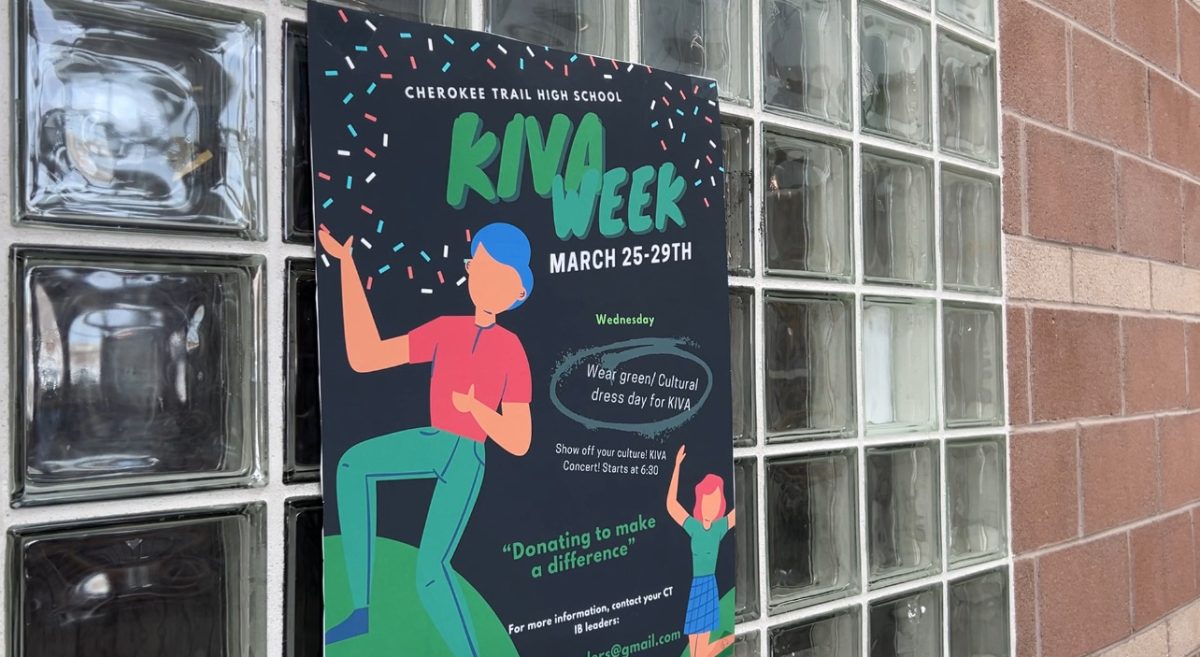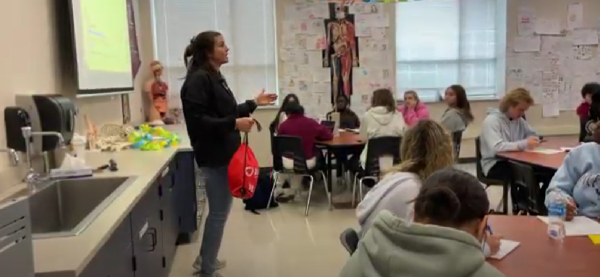Students deal with stress
November 12, 2022
With finals quickly approaching and the amount of homework skyrocketing as the first semester comes to a close, stress management becomes one of the most necessary topics to discuss.
In August, students were excited for a fresh start to increase their grades and work ethic from the previous years. Students described school as easy, fun, and enjoyable, until after the first few weeks of syllabuses, when the workload amped up and deadlines closed in quickly, “It’s insanely stressful getting everything done in a timely manner.” Said Delaney, Sterling (10). These assignments becoming more difficult has led to a visible distressing of the students’ bodies. However, this doesn’t just apply to our community. Across the globe, school has been reported as one of the overall largest stressors for high schoolers, with 83% of teens reporting that schoolwork is one of their top stressors(APA). Stress comes from many outlets in school, just as it does outside the classroom. Studying for a test is crucial to a passing grade, but it also generates loads of stress. “Having to study for upcoming tests can make me really nervous.” Said Carter, Riley (11).
Although it may not seem like it, stress is a serious problem on its own, and creates more issues later in life. A Mayo Clinic Study found that stress that is not acknowledged and helped can contribute to many long-term health issues, such as high blood pressure, heart disease, obesity, and diabetes. Some shorter-term effects include headaches, lack of motivation, sleep difficulties, anxiety, and drug use, all things that can affect any person’s life and school productivity.
According to the Anxiety and Depression Association of America(ADAA), 80% of U.S. students report feeling sometimes stressed or often. However, there are resources here in the building that can be accessed at any time in the school day, “For lower stress, we’ve got all kinds of clubs and activities,” said social studies teacher Mr. Faust. When in a state of low stress, research by Harvard Health has found that breaks after a stressful situation can aid in the management of these feelings. Activities as simple as laughing, stretching, or taking a few minutes to calm down in a quiet environment can improve someone’s mood quickly and get them back to baseline.
When overwhelmed, there are more resources designed to be a channel to release what may be bothering you, get advice, and receive support that may keep people from making impulse decisions that could be harmful to themselves or others, “We have all kinds of outlets you can reach out to. The counseling department, the mental health crisis team, and there are phone numbers you can call.” said Mr. Faust. If experiencing something difficult while in class, teachers that you feel connected to are always there to talk and help coordinate with other adults both in and out of the building, “A lot of teachers just care about their students and talking to them and their parents to figure out ways to help them.” said Spanish and AVID teacher Ms.Rankins.
Students have a number of ways that work best to escape reality and calm down to lower stress before returning to their work, “Get off of your phone, stop doing homework and just focus on yourself,” advises Nada Haddou (10). While it seems like a way to escape reality, social media can play a large role in stress build-up. Students have found that activities away from devices will help them calm down more efficiently. “Find good friends and good activities that can help you de-stress.” Said Delaney Sterling (10)
Everyone deals with stress differently, some might focus on self-love and some might talk to someone, but it is important for CT to come together and help each other during stressful periods like this. CT will overcome stress and complete this year as a more united and mature school.












